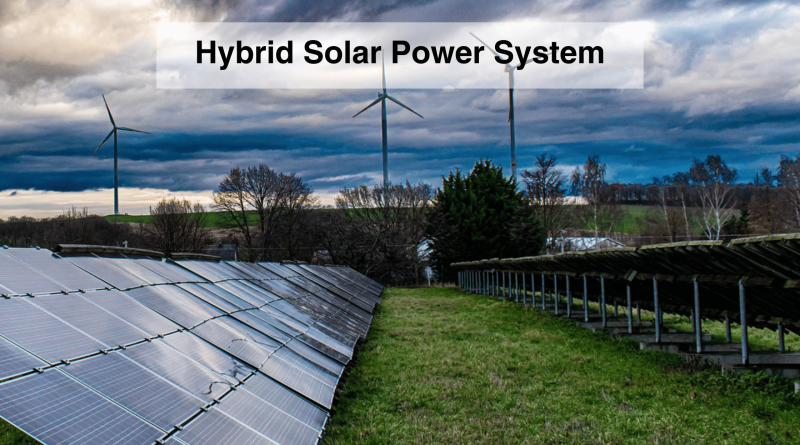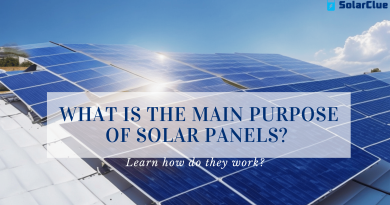Embracing Sustainability: Hybrid Solar Power Solutions
A hybrid solar power system is a type of renewable energy system that combines solar power with another source of energy, such as wind or diesel. This combination allows for a more reliable and consistent power supply, reducing dependence on the grid. In the current climate crisis, the importance of renewable energy cannot be overstated, as it offers a sustainable and clean alternative to fossil fuels.
Table of Contents
Components of a Hybrid Solar Power System
1. Solar panels: These panels convert sunlight into electricity through the use of photovoltaic cells, which generate an electric current upon exposure to sunlight.
2. Batteries: Energy storage is crucial for a hybrid solar system’s efficiency. Batteries store excess energy generated during peak sunlight hours for later use during periods of low sunlight or high demand.
3. Inverter: Responsible for converting the direct current (DC) power generated by solar panels into alternating current (AC) power, making it compatible with household appliances and the electrical grid.
Working Principle
1. Daytime Operation: Solar panels absorb sunlight and convert it into electricity. This power is either used immediately or stored in batteries for later use. The inverter converts the DC power to AC power, which powers household needs. Excess electricity can be sent back to the grid, providing homeowners with credits or compensation.
2. Nighttime Operation: Batteries supply stored energy during times when sunlight is not available, ensuring a continuous power supply at night or on cloudy days.
3. Grid Connection: In cases of insufficient solar energy, the hybrid system can draw power from the grid, serving as a backup and ensuring an uninterrupted electricity supply. Homeowners can also sell excess energy back to the grid, reducing their reliance on traditional sources.
Advantages
1. Increased Self-Sufficiency: By generating and storing their own electricity, homeowners can reduce their dependence on the grid, leading to greater energy independence.
2. Cost Savings: Utilizing clean, renewable energy sources significantly lowers electricity bills, as homeowners can rely less on expensive grid electricity.
3. Reliability and Flexibility: Hybrid systems offer a reliable and stable power supply, as they can seamlessly switch between different energy sources depending on availability and demand.
4. Environmental Benefits: Hybrid solar power systems help combat climate change by reducing greenhouse gas emissions through renewable energy.
Final Sayings
Hybrid solar power systems offer a sustainable and reliable solution for our energy needs. They provide consistent power, reduce grid dependence, and save costs. Embracing renewable energy is crucial for a greener and more sustainable future, and hybrid solar power systems play a significant role in achieving it.
It’s a system that combines solar panels with another power source, such as batteries or the grid, for uninterrupted energy supply.
It generates power from solar panels and supplements it with energy from batteries or the grid during low sunlight periods.
Yes, with the addition of batteries, a Hybrid Solar System can provide power independently during grid outages.
Benefits include continuous power supply, reduced electricity bills, and the ability to utilize clean energy day and night.
While not mandatory, adding batteries enhances the system’s ability to store excess energy for later use, increasing self-sufficiency.
Yes, it’s possible to expand the system by adding more solar panels or increasing battery capacity to meet growing energy needs.
Installation time varies but typically takes a few days to a couple of weeks, depending on system size and complexity.
In many regions, governments offer incentives or rebates to encourage the adoption of Hybrid Solar Power Systems.
Regular checks on solar panels and batteries are recommended, but maintenance is generally minimal for a well-designed system.
By combining solar and alternative power sources, Hybrid Systems reduce reliance on non-renewable energy, lowering carbon emissions and promoting sustainability.


